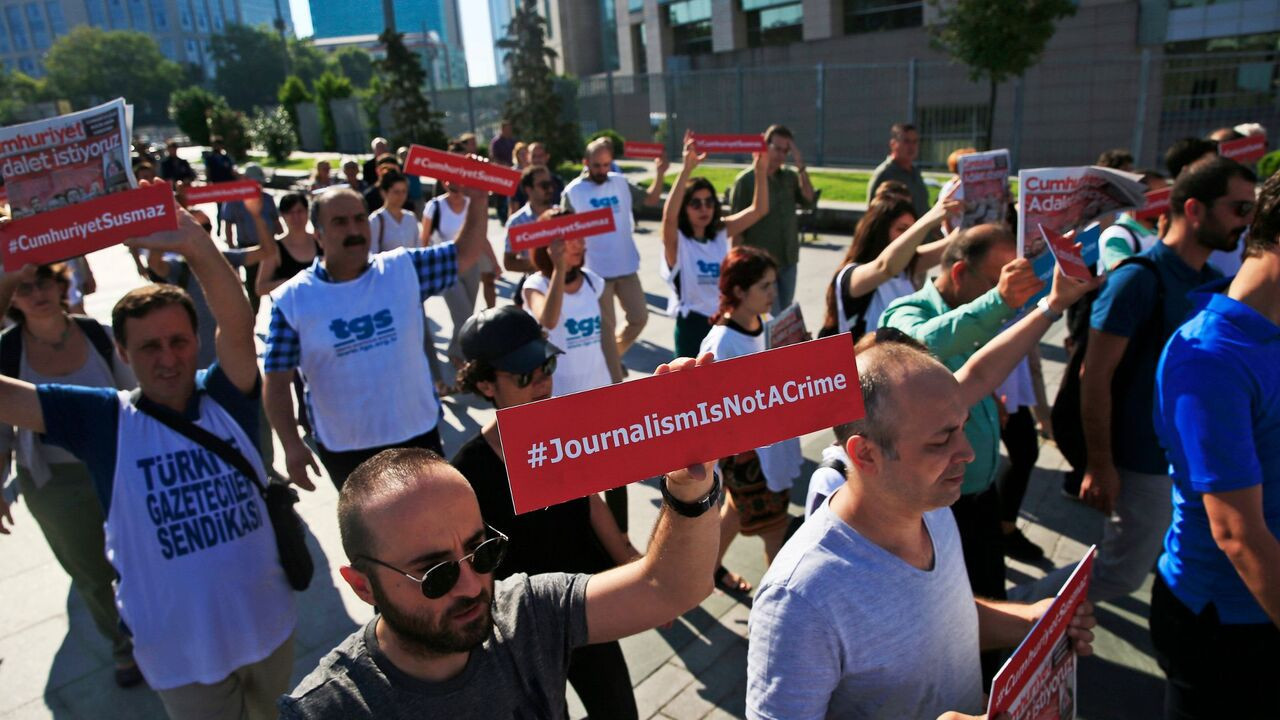Turkish ruling MPs push for ‘foreign influence’ law after opposing Georgian version
Lawmakers from Turkey’s AKP and MHP, who aim to pass the "agents of influence" law, have signed a NATO declaration opposing a similar regulation introduced in Georgia, calling it a "threat to democracy."
Duvar English
It has been revealed that Turkey’s ruling coalition MPs who want to pass the “agents of influence” law in Turkey had signed a declaration issued at the NATO Parliamentary Assembly against Georgia, which has passed a similar law.
Ruling Justice and Development Party (AKP) and its far-right ally Nationalist Movement Party (MHP) has been pushing for introducing a new offense in the Turkish Penal Code to enhance efforts against “espionage activities.”
According to the proposal which will be discussed in the Parliament next week, “Those committing crimes in line with the strategic interests or instructions of a foreign state or organization, against the security of the state or its internal or external political interests, will be punished with three to seven years of imprisonment.”
The main-opposition Republican People’s Party (CHP) Parliamentary Group Deputy Chair Gökhan Günaydın on Nov. 11 revealed on his social media account that in addition to opposition lawmakers, 10 MPs from AKP and MHP also signed the declaration issued by NATO against Georgia, which has enacted a very similar “foreign influence” law.
ETKİ AJANLIĞI DÜZENLEMESİ
— Gökhan Günaydın (@gunaydingokhan) November 11, 2024
Bu hafta TBMM Genel Kurulu’nda, Noterlik Kanunu ile Bazı Kanunlarda Değişiklik Yapılmasına Dair Kanun Teklifi’nin görüşmelerine başlanacak.
Bir torba kanun niteliğindeki teklifin 16 ıncı maddesinde, TCK’ya eklenen bir madde ile kamuoyunda Etki Ajanlığı… pic.twitter.com/nDgtndculH
MP Günaydın stated that the NATO Parliamentary Assembly gathered in Bulgaria between May 24-27, 2024, and subsequently issued Declaration No. 490 against the Georgian Government’s decision.
Turkey is participating in this assembly with a delegation of 18 members of parliament, 10 joining from the ruling coalition and eight from opposition parties.
The main-opposition lawmaker said that there have been “no doubt” about the votes of the opposition MPs who signed in favor of this declaration and added, “However, we will watch together how the 10 ruling MPs who signed the declaration in Bulgaria will vote in Ankara.”
The 12th article of the declaration stated, "Firmly committed to supporting Georgia’s democracy, independence, sovereignty and territorial integrity, and European and Euro-Atlantic aspirations, but deeply concerned about the law on the so-called 'transparency of foreign influence,' which is a step backwards for the country’s democratic consolidation and runs counter to its NATO as well as EU aspirations, and urging the Georgian authorities to withdrawn the law before it further damages Georgian democracy."
Criticizing the law aimed to pass in Turkey, Günaydın said, "The justification of the article clearly reveals the broad scope and objective of the article's text. The regulation also avoids the legal difficulty of proving foreign state relations: Whether the foreign state is a subject of the relationship or not, if it is claimed that you are working for a certain structure's alleged strategic interest, you are straightforwardly labeled a spy and will be punished accordingly."
Background
Critics have stated that the bill would be instrumentalized to threaten “journalistic independence and freedom of expression” like the government did with the infamous “disinformation law.”
Previously CHP leader Özgür Özel criticized the draft and likened President Recep Tayyip Erdoğan to Russian President Vladimir Putin who also introduced similar laws targeting opposition.
Civil society organizations also criticized the proposal, warning that its vague definitions could be misused to target NGOs, which the government often labels as being influenced or controlled by Western interests.
In May, the Georgian also government passed a law requiring organizations established in Georgia that receive more than 20% of their funding from abroad to register as “foreign influence agents” or face fines.
Russia was the first country implementing an "agents of influence" law in 2012.

 Turkish government resubmits 'agents of influence' bill to parliamentPolitics
Turkish government resubmits 'agents of influence' bill to parliamentPolitics Turkey’s ruling party drafts controversial legislation targeting ‘agents of influence’Politics
Turkey’s ruling party drafts controversial legislation targeting ‘agents of influence’Politics Over 217 years of imprisonment handed in cases regarding freedom of expression in Turkey: MLSA reportHuman Rights
Over 217 years of imprisonment handed in cases regarding freedom of expression in Turkey: MLSA reportHuman Rights